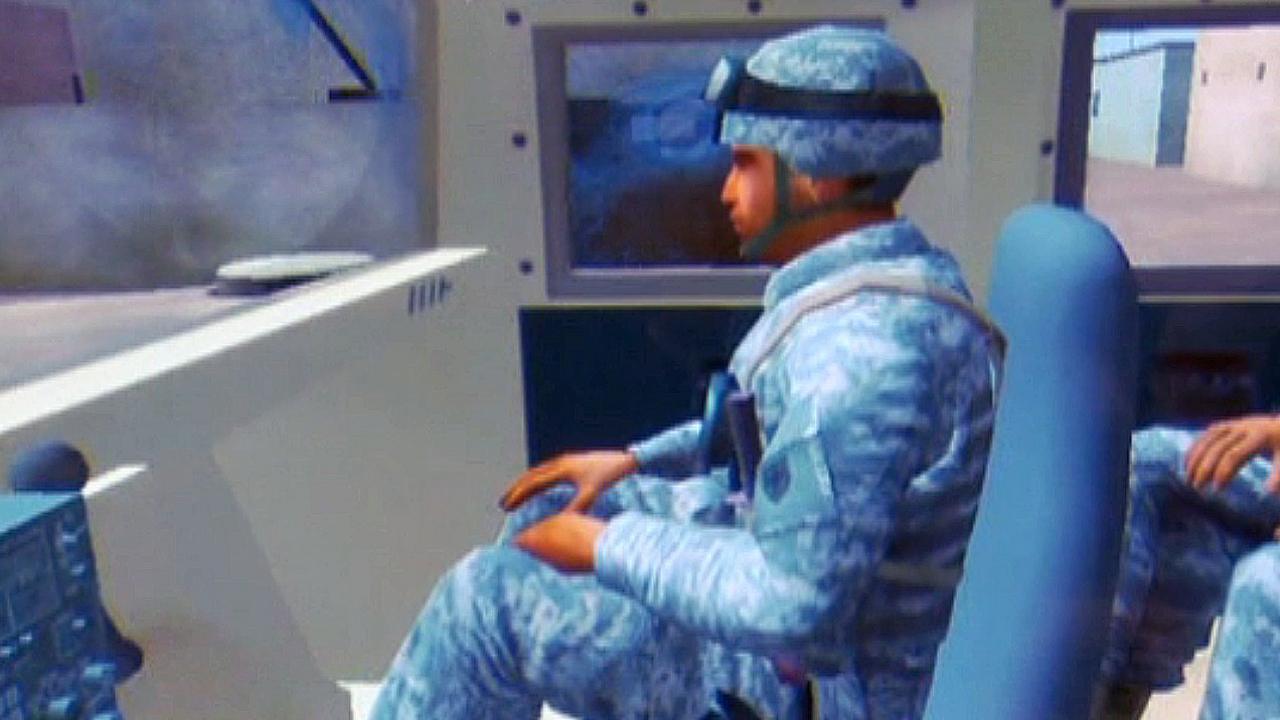Study creates 'time travel' illusion
- Published
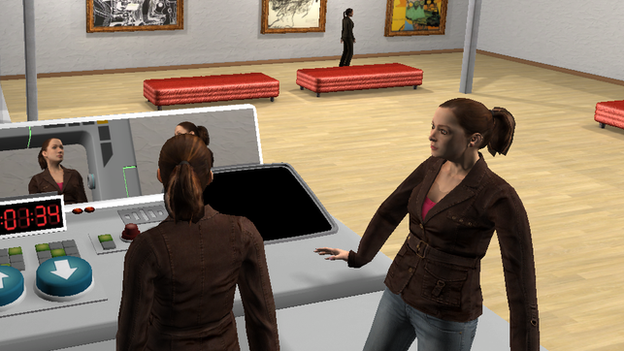
Participants see and hear their previous virtual selves when they go back in time
Virtual reality can be used to give the illusion of going "back in time", according to an exploratory study.
In this virtual world, subjects were able to reduce how many people a gunman killed, an event they had unknowingly been part of.
Going into "the past" increased the level of guilt the participants felt.
Writing in the journal Frontiers in Psychology, external, the team says that virtual time travel could help people overcome traumatic experiences.
Most interesting, the researchers add, was the emotional impact virtual time travel had on the participants.
"The more the participants felt the illusion, the greater the sense of their own morality," explained co-author Mel Slater of the ICREA (Catalan Research Institute) and University College London.
Mutable past
In the virtual world, participants could walk, talk and move similar to how they would in real life, and previous studies have shown that people strongly associate with their virtual selves.
"In virtual reality, the brain's low level perceptual system does not distinguish between the virtual and the real world; the brain takes what it sees and hears in a surrounding environment as given," added Prof Slater.
"Therefore, if they had an experience with the illusion of time travel, there is implicit learning that the past is mutable, that is: 'my own past decisions don't matter because they're changeable'."
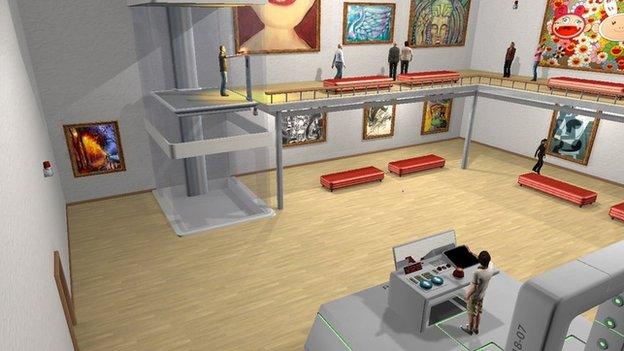
People were able to go back in time to save five lives at the expense of one
In the study, 32 participants witnessed a man open fire and kill five people in an art gallery. They had learnt to control a lift and had allowed the killer to go to the upper-level.
Half of these went back in time to experience this event once more, but this time were faced with a classic moral dilemma: do nothing and five people will die, or intervene and five lives can be saved at the expense of one.
The other half simply experienced the same event but were not able to change their earlier actions.
This dilemma is commonly used in philosophical studies looking at morality. As expected, most participants chose to intervene.
This team says that virtual time travel could help people overcome post traumatic stress disorders or to revaluate previous bad decisions.
Time machine
The laws of physics, of course, currently dictate that time travel is not possible. But lead author of the work, Friedman Doron, from the Sammy Ofer School of Communications in Israel, said his team had now come closest to it.
"Highly immersive virtual reality is very visceral. People hide behind the desk when they get shot. Some of the subjects duck down. It's the best thing we can do for time travel until the physicists do their job and come up with a time machine. For now this is the closest thing."
Physicist Robert Nemiroff of Michigan Technology University, US, commented that the work was interesting, though strange as "the ability to change the past is not a reasonably likely occurrence".
"If some version of illusory 'time travel therapy' can help people make better decisions in the future, and come to a better understanding of bad decisions, they have made in the past - then I am all for it."
But he added that having patients going around really believing that that they could change the past "might have negative repercussions that have not been explored".
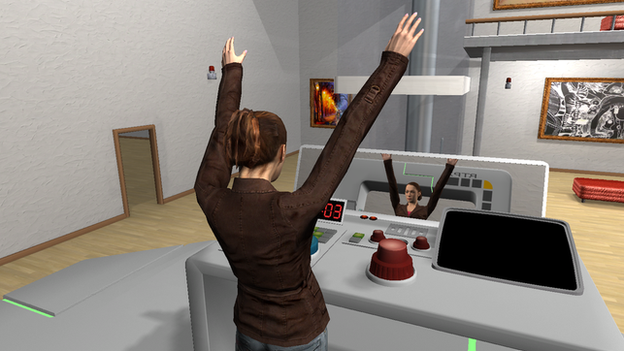
Studies have shown that people experience a strong sense of body ownership in virtual worlds
People have long entertained the fantasy of going backwards in time, commented James Broadway from the University of California Santa Barbara, who was not involved in the research but edited the journal collection in which it appeared.
"'If I knew then what I know now...' is a common lament indeed.
"While it remains impossible to un-do something that has already occurred, results of this study suggest that... virtual reality techniques can be usefully harnessed to promote greater acceptance of one's own mistakes in the past, as well as better decision-making in the future."
Follow Melissa on twitter, external
- Published3 December 2013
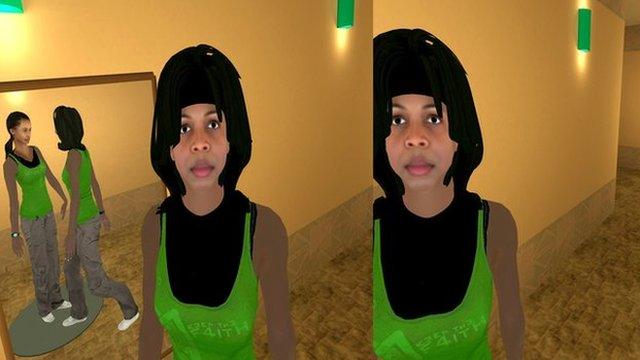
- Published16 July 2013
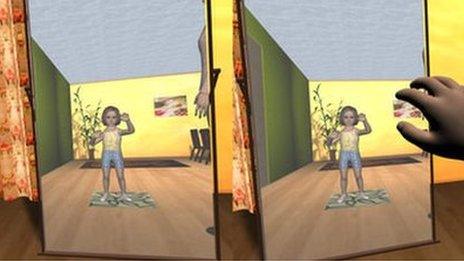
- Published25 September 2012
